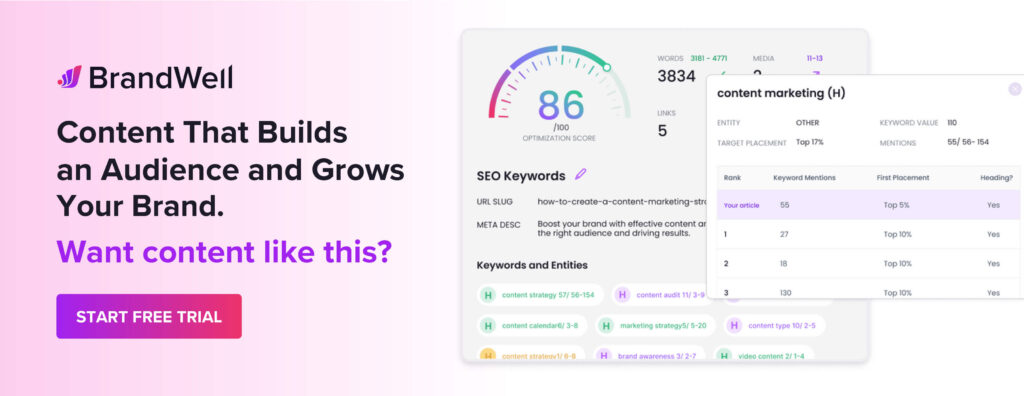Discover top guides, trends, tips and expertise from AIO Writers
What is Marketing Automation and How Can It Benefit Your Business?
Ben Harper
Wednesday, 26th Feb 2025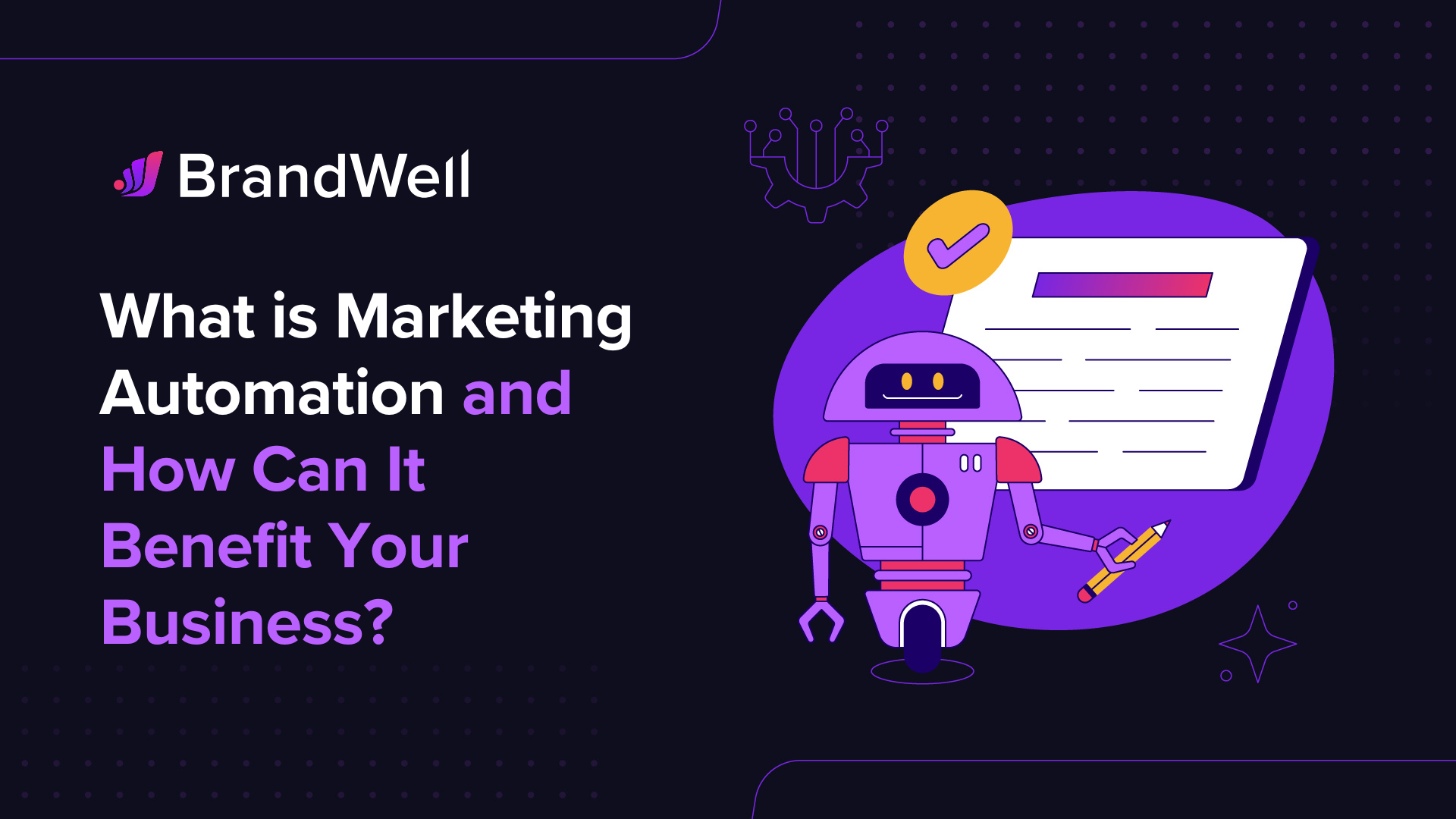
Ever feel like there just aren’t enough hours in the day to handle all your marketing tasks?
Marketing automation is the solution.
Advanced software can now take care of all those repetitive tasks — sending emails, posting on social media, or nurturing leads — so you can do more with less.
Businesses are already catching on: 79% of top-performing companies have been using marketing automation for at least three years.
With the right tools, you can streamline your workflows, personalize customer interactions, and boost conversions without the extra workload.
Whether you’re running a startup or managing a growing enterprise, marketing automation helps you scale your efforts efficiently.
Let’s dive into how it works and how you can use it to grow your business.
What is Marketing Automation?
Marketing automation refers to software that performs routine marketing tasks without human intervention. It can track customer behavior, send personalized follow-up emails, qualify leads, and analyze customer interactions to improve products and processes.
What is the most common use of marketing automation?
Marketing automation can be applied across various marketing channels, making it an essential tool for modern businesses. Some of the most common applications include:
1. Email Marketing
- Automated welcome sequences for new subscribers
- Drip campaigns to nurture leads
- Personalized product recommendations based on customer behavior
- Re-engagement emails for inactive users
2. Social Media Marketing
- Scheduling and publishing posts across multiple platforms
- Auto-replying to common customer queries
- Social listening and sentiment analysis
- Automated direct messaging campaigns
3. Paid Ads
- Automated audience segmentation for targeted ads
- Dynamic ad retargeting based on user activity
- A/B testing automation to optimize ad performance
- Predictive analytics to improve ad spend efficiency
4. Content Marketing
- AI-driven content creation
- Automated content distribution across multiple channels
- Smart content curation for blog posts and newsletters
- Search engine optimization
What Can Marketing Automation Do for Your Business?
The primary benefit of marketing automation is increased efficiency and productivity – allowing marketers to do more with less time.
1. Save Time (and Money!)
Why spend hours doing tasks that can be automated? From scheduling emails to following up with leads, automation frees up your team to focus on strategy instead of busy work.
If you typically spend four hours writing a blog post, automation can cut that down to minutes!
Watch how we created an entire newsletter using the content marketing platform BrandWell in just 16 minutes:
2. Increase Conversions Without Extra Work
Marketing automation ensures your leads get the right message at the right time, making it easier to turn prospects into paying customers.
No more guesswork — just data-driven personalization that works.
3. Help You Focus on the Right Leads
Not every sales lead is worth chasing. Automation helps you score and prioritize leads, so your sales team only spends time on the ones most likely to convert.
4. Give You Better Customer Insights
The more you know about your customers, the better you can serve them. Automation tools track behaviors, analyze engagement, and provide insights to help you refine your marketing strategies.
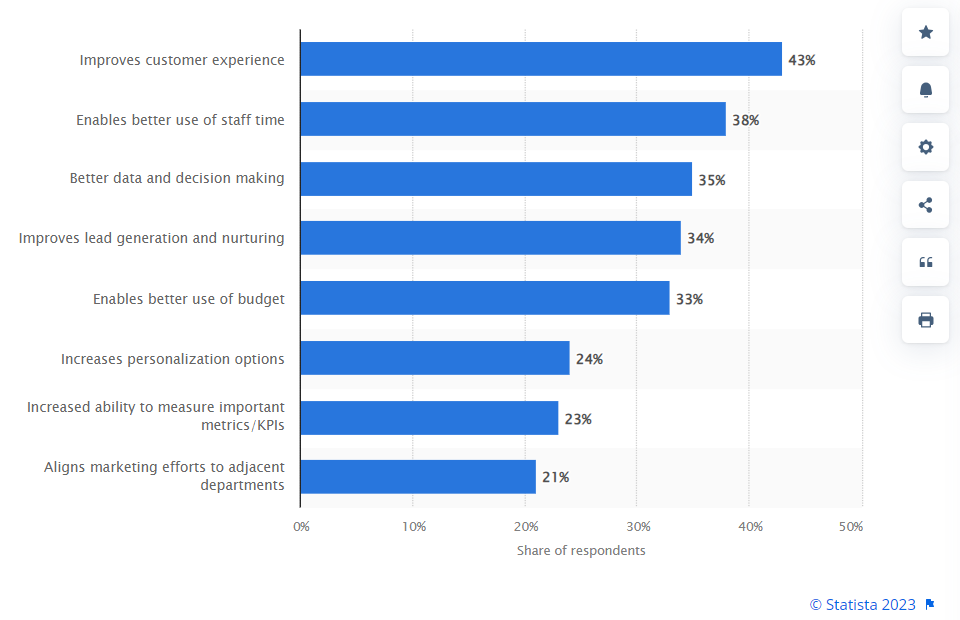

Top benefits of marketing automation according to Statista
How Does Marketing Automation Affect Your Customers?
Automation not only benefits your business. Here’s what it can do for your customers:
1. Delivers the Right Content at the Right Time
Ever wonder why Netflix always seems to know what you want to watch next? That’s automation at work — helping you serve your customers relevant content, emails, and recommendations when they need them most.
2. Provides Faster (and Smarter) Support
No one likes waiting for answers. With chatbots and automated responses, your customers can get quick solutions to their questions, improving their overall experience.
3. Creates a Seamless Experience Across Channels
Marketing automation ensures that whether your customer engages with your brand via email, social media, or your website, they get a consistent, personalized experience.
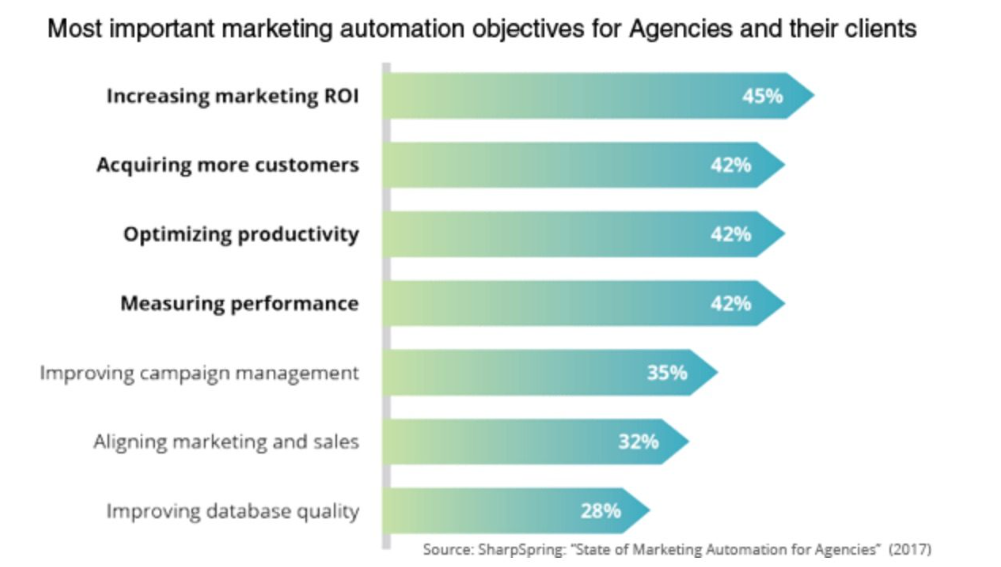

Screenshot from FinancesOnline
Who Should Use Marketing Automation?
Marketing automation is not for everyone. Who is it for then?
Small Businesses
Small businesses can take advantage of marketing automation to optimize their campaigns and improve efficiency. Automated tools such as email marketing software enable marketing professionals to create personalized emails for each customer segment, while also allowing them to respond quickly to inquiries or feedback in real time without having to constantly monitor the system.
Analytics data collected through automation can also be used by small businesses to gain insights into each customer journey so they can make more informed decisions about future campaigns.
Corporations
For larger companies with multiple teams, marketing automation provides an easy way to keep everyone organized while ensuring consistency across all channels. Automated systems allow teams to track progress on various tasks in one place while providing insights into how well certain strategies are performing. This type of visibility helps managers identify areas where improvements need to be made so resources aren’t wasted on ineffective tactics.
Nonprofit Organizations
Nonprofit organizations fund their operations through charity. Marketing automation makes it easier for nonprofits to generate and send thank-you messages to donors as well as track donor information for follow-ups.
Automated systems also help ensure compliance with laws related to fundraising activities which are essential for maintaining credibility within the nonprofit sector.
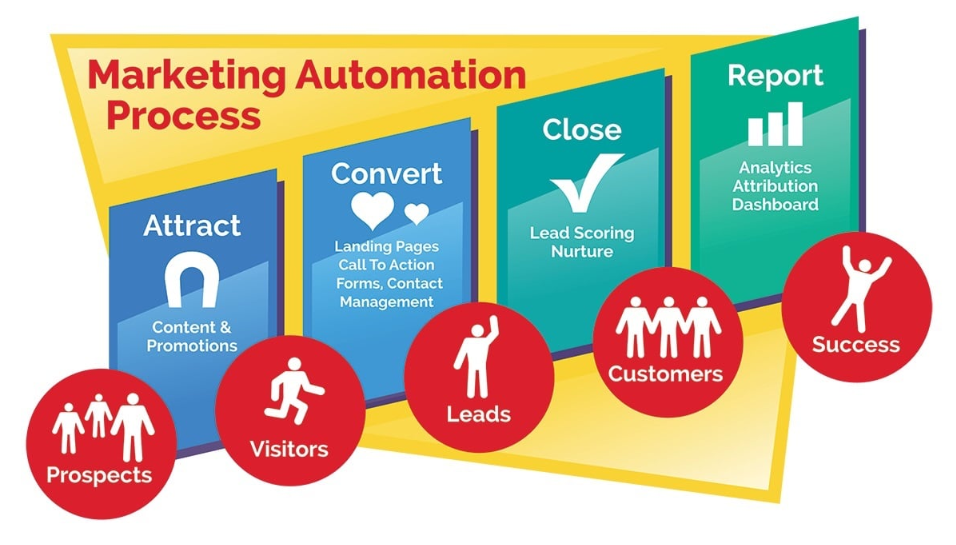

How marketing automation works for small businesses
Getting Started with Marketing Automation
So, you’re ready to jump into marketing automation? Great! But before you start automating everything in sight, it’s important to have a plan.
Here’s how to get started the right way:
1. Figure Out What You Can Automate
Take a step back and look at your daily marketing tasks. Which ones take up the most time? Start with those — email follow-ups, social media posts, and lead nurturing are great places to begin.
- Identify repetitive tasks: Look at processes that happen frequently, such as responding to leads or sending emails.
- Analyze your current workflow: Pinpoint where bottlenecks occur and where automation could save time.
- Prioritize tasks that impact growth: Focus on automating areas that directly contribute to lead generation and conversion.
2. Choose the Right Automation Tools
Not all automation software is created equal. Find one that fits your budget, integrates with your existing tools, and is easy for your team to use.
- Match tools to your needs: If you need email automation, tools like MailChimp work great. For social media, Hootsuite is a solid choice. If you don’t have a writing background, BrandWell is your perfect companion for bulk content creation.
- Check for integrations: Ensure your automation software works seamlessly with your CRM, email platform, and analytics tools.
- Start with a free trial: Many platforms offer trial periods — test them out before committing.
Once you have chosen the right set of tools for your marketing needs, you can start developing strategies such as segmenting audiences, personalizing messages, testing different email versions, automating follow-up tasks, and tracking performance metrics.
3. Make Sure Your Team Knows the Ropes
Even the best automation tools won’t help if your team doesn’t know how to use them. Take time to train your staff so they can fully leverage automation.
- Provide hands-on training: Walk your team through the tools, showing them how to set up workflows and campaigns.
- Create process documentation: Outline step-by-step guides for using automation tools effectively.
- Encourage experimentation: Allow team members to test features and optimize workflows for maximum efficiency.
How to Use Marketing Automation Software
Now let’s break down the different ways you can automate your marketing effectively.
Content Creation
Content creation is one of the most time-consuming, and expensive, tasks in marketing. As I mentioned earlier, it takes around four hours just to write a single blog post!
Automation allows you to produce and distribute high-quality content to target audiences at unbelievable speeds. This means you could create, publish, and distribute content at scale even with a small team.
For example, BrandWell can generate a 4,000-word blog post in under 5 minutes. That’s speed that no human writer can match!


What types of content can you generate with marketing software?
1. Long-Form Blog Posts
AI-powered tools like BrandWell can generate long-form, SEO-optimized blog posts in minutes, helping you stay ahead without spending hours writing. Simply input your topic, let the AI generate a draft, and edit it to add your unique voice.
BrandWell also takes care of all the research you need. Instead of going through every link on a Google SERP, you only need to enter a seed keyword into the app and it will crawl Google for top-ranking information about the topic at hand. This way you can quickly generate blog posts with just a few clicks instead of starting from scratch every time you need new content.
See how we created an entire 8,000-word ebook with BrandWell in just 25 minutes:
An AI-powered writing assistant like Grammarly also saves you valuable editing time as it automatically checks your grammar and spelling while providing helpful suggestions on word choice or sentence structure.
2. Social Media Posts
Most marketers run socials on LinkedIn, Facebook, Twitter, YouTube, and sometimes Pinterest and TikTok. Now, writing content for all these channels every single day can be a hassle — but automation tools make it effortless.
AI-powered platforms can generate high-quality, engaging posts tailored to your brand’s voice in minutes. They can help write captions, hashtags, and even entire social media campaigns with minimal effort.
BrandWell is not just a long-form content writer — its WriteWell suite can help you automate social media posts so you don’t have to manually write content for all your social media accounts.
Here’s an example of a Facebook post written by WriteWell:


With automation, you can create posts in bulk, schedule them in advance, and even repurpose blog content into bite-sized social updates. Whether you’re running a Twitter thread, LinkedIn post, or Instagram caption, AI-driven tools save time while keeping your social media fresh and engaging.
3. Email Campaigns
Email marketing remains one of the most effective channels, but manually sending emails is inefficient.
First, you have to write dozens, if not hundreds, of emails for different campaigns. Then you have to schedule them in an email outreach cadence that matches the customer journey.
The good news is you can automate this entire process!
BrandWell can help you write those emails with just a simple prompt, like this:
And then platforms like MailChimp, ActiveCampaign, or GetResponse let you create automated email sequences that nurture leads, onboard new subscribers, and re-engage inactive users — all without lifting a finger.
Beyond content generation, marketing software can also help you:
1. Distribute Content Efficiently
Your content shouldn’t just live on your blog. Automate content syndication across multiple platforms to maximize reach.
Tools like Zapier can help you automatically share new blog posts to social media, send newsletters with curated content, or repurpose content into different formats.
2. Personalize Content for Your Audience
Personalization boosts engagement, and automation helps you do it at scale. Use AI-powered recommendations to serve content based on user behavior.
For example, if a visitor reads a blog post about email marketing, your automation system can suggest related articles, send them a relevant ebook, or invite them to a webinar.
3. Manage Your Social Channels
Marketing software makes social media management way easier by handling repetitive tasks like scheduling posts, responding to messages, monitoring brand mentions, and even curating content.
Plus, automation can help with social listening, ad optimization, and performance tracking — so you can focus on creating great content instead of manually managing every little detail.
Tools like Hootsuite, Buffer, or SocialBee help you keep your social media active, relevant, and engaging without spending hours on it every day. Whether it’s auto-replying to FAQs, recycling evergreen content, or tracking what’s working (and what’s not), automation helps you stay consistent and grow your audience effortlessly.
SEO
It’s not enough to produce well-written content. You want that content to get in front of the right audience at the right time — that’s the goal of SEO.
But can you automate SEO as well? Let’s look at some SEO tasks that you can leave to machines.
1. Keyword Research
Doing keyword research manually can take forever, which is why marketers have long been using software to accomplish this task.
Automated keyword research tools are important in any content marketing strategy as keywords are the foundation of good SERP ranking.
Additionally, content marketing automation software can track changes in keyword popularity over time, allowing you to adjust your strategies accordingly.
BrandWell has added keyword research to its AI writing tool so you don’t have to switch between browsers (and pay for extra software) to find those golden terms and phrases. With a unified editor, you can generate blog posts for each keyword by simply clicking “Create Content” on the Action panel.
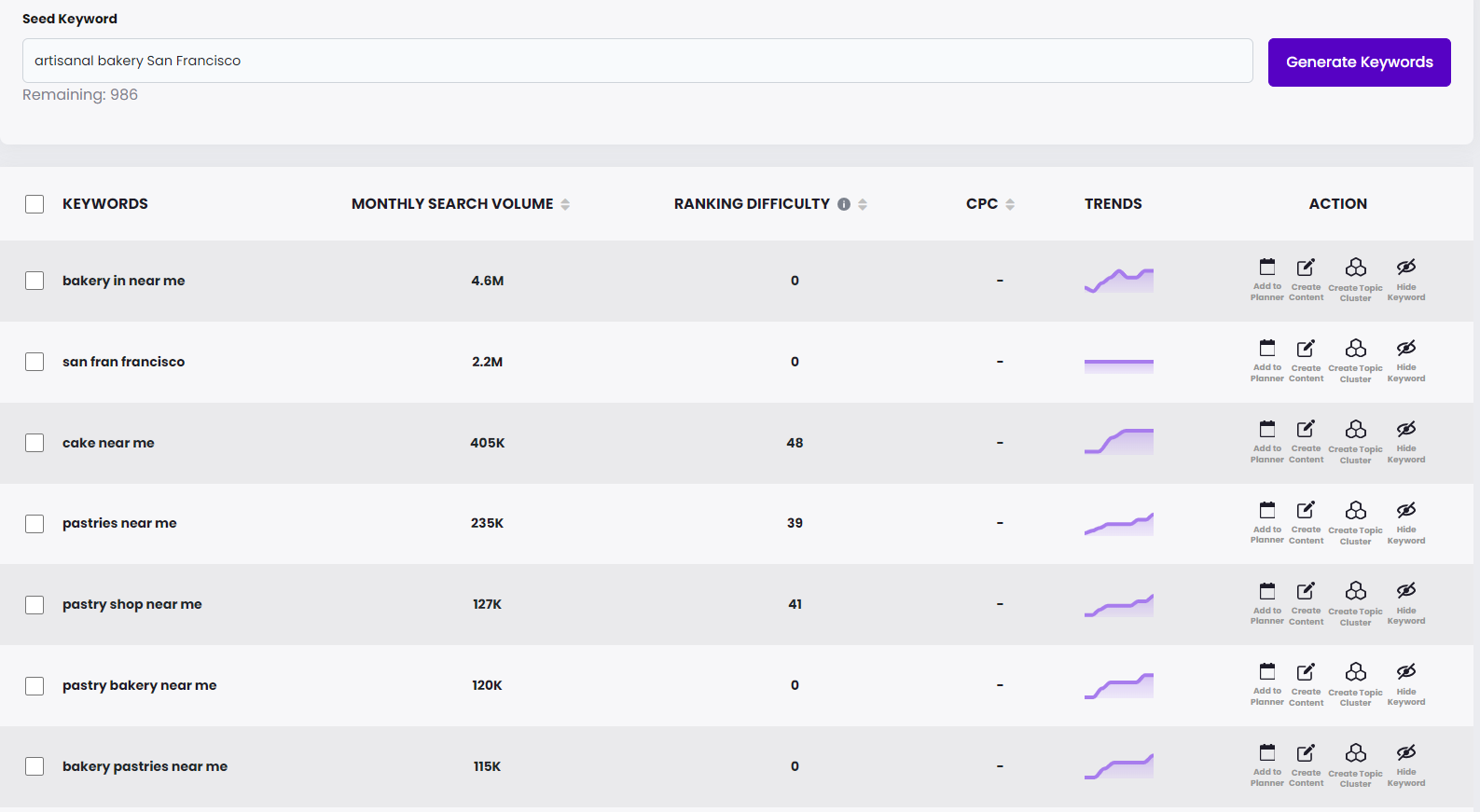

2. Link Building
Link building is an important part of any SEO content marketing strategy, but it’s often time-consuming and tedious work. Fortunately, there are several marketing automation solutions available that make link-building easier.
Save plenty of man hours by automating the process of finding relevant websites to link back to yours as well as monitoring existing links for quality assurance purposes.
3. Website Audits
Regular website audits are another content marketing strategy that takes too much time to do without automation. With marketing automation technology, you can now quickly scan through all pages on your site and look for potential issues such as broken links or missing meta tags which could affect its ranking.
If you’re using BrandWell, you can audit an entire website by simply entering its URL. BrandWell will crawl its content, build a comprehensive brand graph, and analyze what it is about, how the content is written, and which pieces need to be improved.
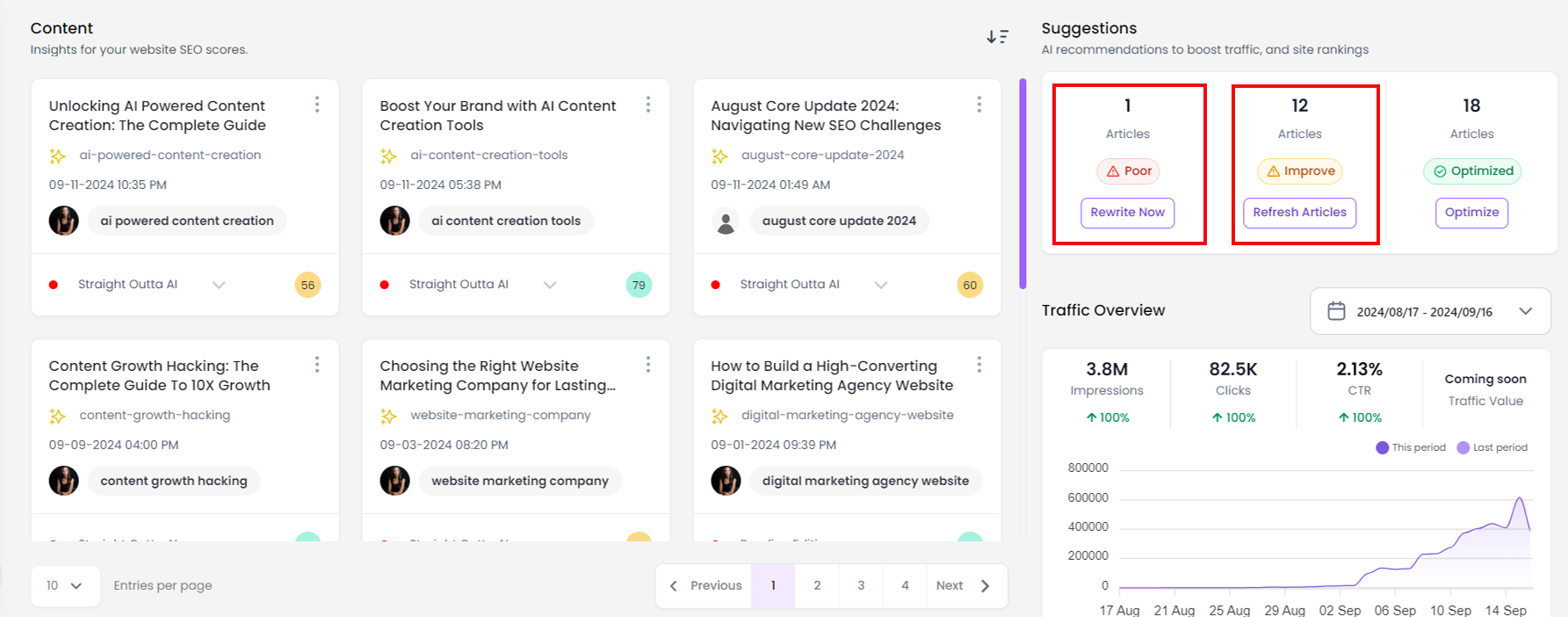

Now how about advertising? Can you use technology to automate your PPC campaigns?
Advertising Campaigns
Running paid ad campaigns manually can be time-consuming and inefficient. Automation helps optimize your budget, target the right audience, and improve ad performance.
Here’s how:
1. Automate Audience Targeting
Platforms like Google Ads and Facebook Ads Manager use AI-driven automation to refine your audience targeting. By leveraging data from user behavior, interests, and demographics, these platforms can automatically adjust your ads to reach the most relevant users.
2. Optimize Bidding Strategies
Instead of manually setting bid amounts, use automated bidding strategies to maximize results. Tools like Google’s Smart Bidding analyze real-time data to adjust bids and increase conversions while staying within budget.
3. Run Dynamic Ads
Rather than creating separate ads for every product or service, dynamic ads automatically adjust based on user behavior. Platforms like Meta (Facebook) and Google can pull relevant product images and descriptions based on a visitor’s past interactions with your website.
4. A/B Test Ads Automatically
Ad automation tools like AdEspresso and Google Optimize allow you to run multiple variations of an ad to see which performs best. The platform then shifts the budget toward the highest-performing versions without manual intervention.
5. Automate Retargeting Campaigns
Use tools like Google Remarketing and Facebook Retargeting to automatically re-engage users who have interacted with your website. This ensures that potential customers see relevant ads at the right time, increasing the chances of conversion.
6. Track and Adjust Ads in Real Time
Marketing automation tools provide real-time analytics that allow you to adjust campaigns on the fly. Platforms like HubSpot, Semrush, and Google Analytics help you monitor performance and make data-driven adjustments without manually analyzing reports.
By leveraging automation for paid ads, you can optimize performance, improve targeting, and reduce wasted spend—all while making the most of your advertising budget.
Lead Generation
Marketing automation efforts for your lead generation strategies can be a huge time saver, not to mention financial resources when trying to capture leads from your target audience.
Here are a few marketing automation examples for lead generation.
1. Lead Capture and Nurture
Lead capture involves collecting contact information from potential customers in exchange for something of value, such as an ebook or webinar registration. You can embed forms or pop-ups on your website to ask visitors to provide their contact information before they access more content.
BrandWell takes lead capture to the next level by introducing TrafficID — a visitor identification tool that tells you who’s visiting your site (not just company names!) and how you can contact them.
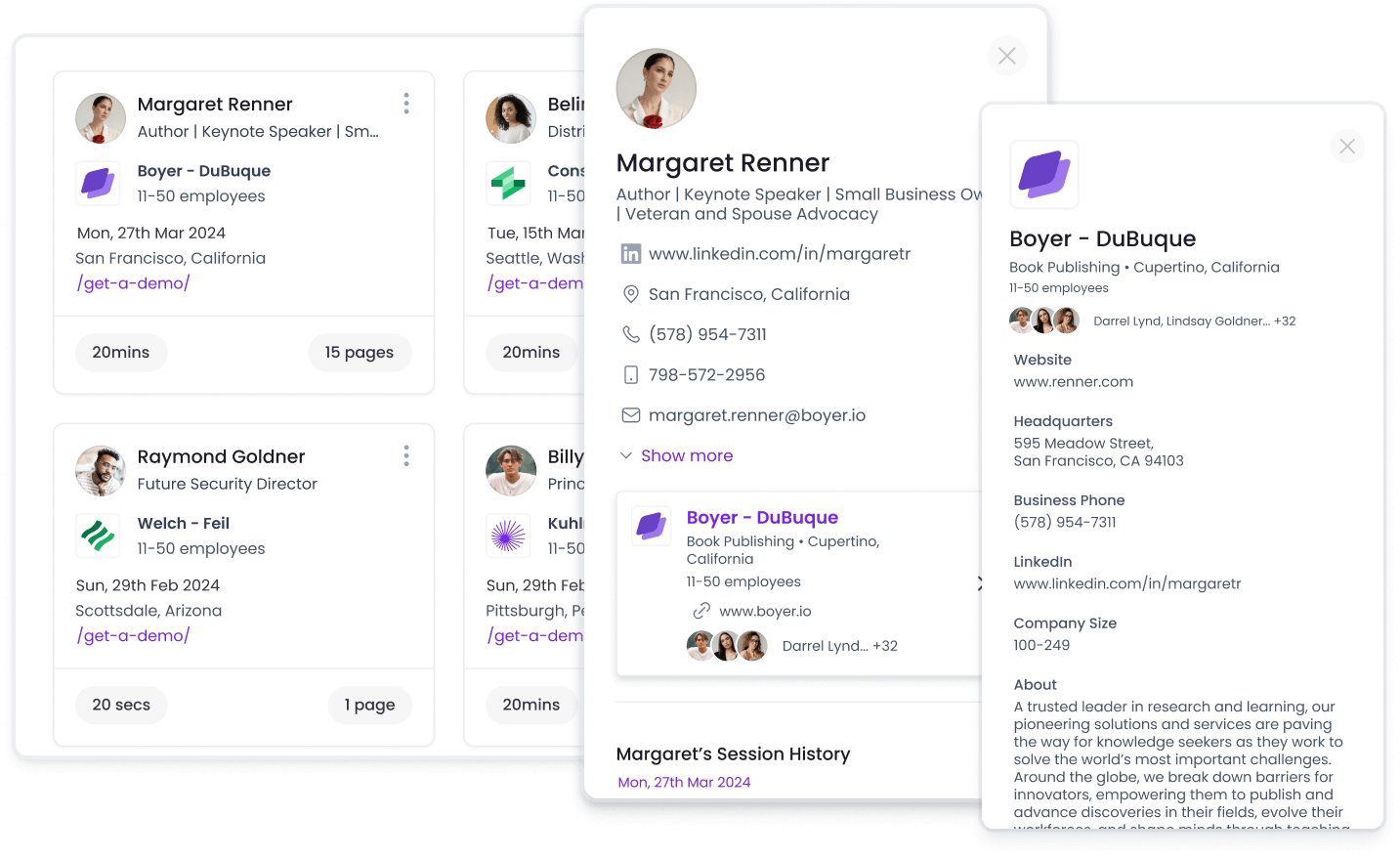

TrafficID also reveals behavioral insights so you know which pages your visitors are looking at, how long they stayed there, and how many times they came back.
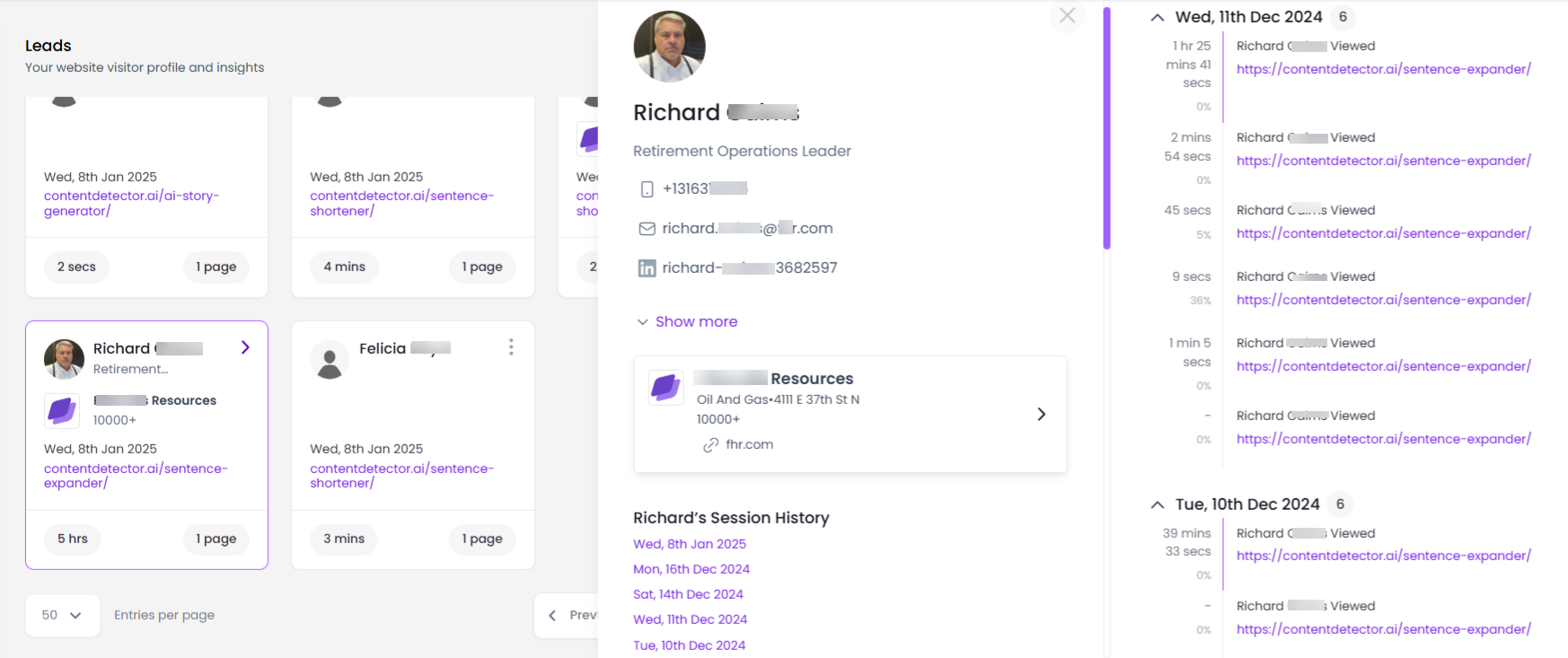

Once you have collected the lead information, you can use automated email campaigns to nurture those leads with relevant content and offers tailored specifically for them.
2. Lead Scoring and Segmentation
Lead scoring and segmentation processes can be automated by assigning points (or “scores”) based on certain criteria such as demographics, interests, and behaviors to prioritize which leads should be contacted first. Segmenting contacts according to common characteristics also makes it easier for sales teams to reach out to prospects with the legwork already done by automation tools.
3. Lead Qualification
Lead qualification is another component of marketing processes that can benefit from automation. Sales teams can focus on closing deals rather than researching prospects manually.
By setting up qualifying rules within a CRM system, sales reps no longer need to determine if a prospect is worth pursuing. Automation technology solutions allow them to accurately qualify each individual according to their predetermined standards.
Automating lead-generation processes can save businesses valuable time and resources while ensuring that sales teams only contact qualified leads. Marketing software platforms can help capture, nurture, segment, and qualify prospects for higher conversion rates.
Implementing a Successful Marketing Automation Strategy
Marketing automation tools can do a lot more than just save time — they help you create personalized experiences, optimize campaigns, and generate better results with less manual effort.
Here’s how to roll out a successful automation strategy:
1. Learn About Your Customers and Their Data
Before you automate anything, you need to understand your audience. Use tools like HubSpot, Google Analytics, or Customer.io to track customer behavior, segment audiences, and gather insights on what works best.
- Track website interactions: Identify which pages your visitors spend time on and what content they engage with.
- Segment your audience: Group leads and customers based on interests, demographics, and behaviors.
- Use predictive analytics: Some tools can forecast customer actions, helping you send the right messages at the right time.
2. Map Out the Customer Journey
A well-planned customer journey ensures that your automation flows make sense. Outline the different touchpoints — email, social media, paid ads, etc. — and determine where automation can enhance the experience.
- Identify key milestones: From lead generation to conversion, know where customers drop off and where they need nurturing.
- Set up automated triggers: For example, send a welcome email when someone subscribes or follow up when a lead visits your pricing page.
- Personalize the journey: Use dynamic content and AI-driven recommendations to deliver tailored experiences.
3. Create a Content Strategy Based on Your Goals
Marketing automation works best when it’s backed by a strong content strategy. Whether it’s blog posts, email campaigns, or social media, automation tools can help you deliver the right content at the right time.
- Write with AI: Platforms like BrandWell can generate blog posts, email sequences, and social media captions with minimal effort.
- Automate content distribution: Use tools like Buffer, Hootsuite, or Zapier to share new content across multiple channels automatically.
- Set up lead nurturing campaigns: Drip email sequences can educate and convert leads over time without manual intervention.
4. Continuously Monitor and Optimize Your Campaigns
Automation isn’t a “set it and forget it” solution. Regularly analyzing performance and making adjustments is key to long-term success.
- Monitor key metrics: Track open rates, click-through rates, and conversion rates to see what’s working.
- Refine your workflows: Remove unnecessary steps, tweak messaging, and optimize sequences based on data insights.
- Stay up to date with new features: Automation tools constantly evolve — stay informed to take advantage of the latest improvements.
By following these steps, you can make the most of marketing automation tools, freeing up your time while improving engagement, conversions, and customer experiences.
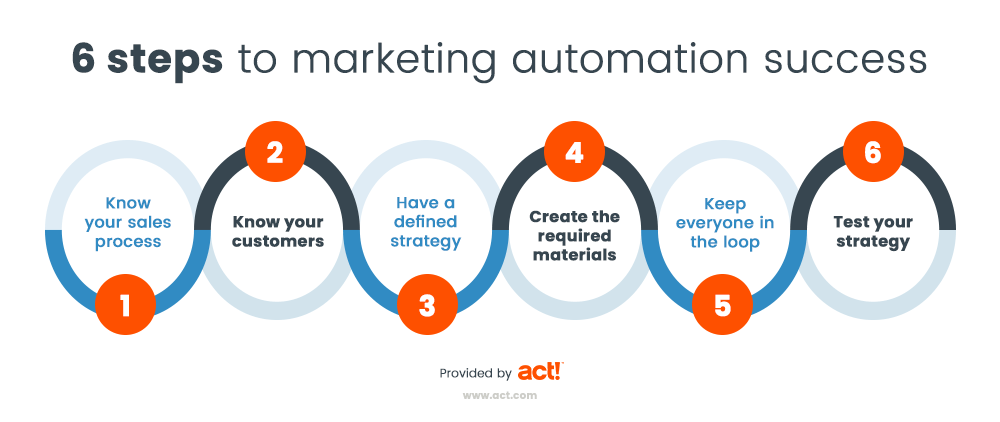

Tips on Using Marketing Automation
Marketing automation can be a game-changer, but only if you use it correctly. Here are some key tips to help you get the most out of your automation efforts:
1. Set the Right Tone
Automation shouldn’t make your brand feel robotic. Keep your messaging warm, engaging, and human. Whether it’s emails, chat responses, or social media posts, ensure your tone reflects your brand’s personality.
- Use personalization: Address recipients by name and tailor content based on their interests.
- Avoid overly generic messaging: Always add a personal touch to machine-generated content so it doesn’t sound mass-manufactured.
- Test different tones: Some audiences respond better to formal communication, while others prefer a casual approach.
2. Stay Human
Automation is powerful, but customers still value human interaction. Strike a balance between efficiency and personal touch.
- Use automation to free up time for personal engagement: Let your team focus on high-value interactions rather than repetitive tasks.
- Allow easy access to human support: If using chatbots, ensure customers can seamlessly switch to a live agent when needed.
- Monitor automated responses: Review chatbots, email sequences, and auto-replies to prevent miscommunication.
3. Mix Up Your Content
Repetitive messaging can turn off your audience. Use automation to deliver diverse and engaging content.
- Incorporate different formats: Mix emails, blog posts, videos, and interactive content in your automated sequences.
- Leverage dynamic content: Adapt emails and website messaging based on user behavior and preferences.
- Rotate subject lines and CTAs: Keep messages fresh to avoid content fatigue.
4. Stay Relevant
Customers expect timely and relevant communication. Use data and behavior tracking to ensure your automated messages hit the mark.
- Trigger emails based on actions: Send cart abandonment reminders, welcome emails, and follow-ups based on user activity.
- Use AI-driven insights: Tools like HubSpot and ActiveCampaign can analyze customer behavior and optimize outreach.
- Update content regularly: Ensure your automated messages stay current and aligned with industry trends.
5. Always A/B Test
Even the best automation strategies need fine-tuning. Regular testing helps optimize performance.
- Test subject lines and headlines: Find out which ones drive the highest open rates.
- Experiment with timing: See whether emails and social media posts get the best response in the morning, afternoon, or evening.
- Analyze CTA effectiveness: Compare different calls to action to determine what drives conversions.
6. Focus on the Customer Experience
At the end of the day, automation should enhance — not replace — the customer experience. Ensure your workflows add value rather than frustration.
- Don’t over-automate: Too many automated emails or messages can feel spammy.
- Make unsubscribing easy: Respect customer preferences and avoid forcing engagement.
- Use automation to provide helpful solutions: Offer personalized recommendations, timely reminders, and seamless interactions.
By keeping these tips in mind, you can leverage marketing automation to build stronger relationships, increase conversions, and create a seamless experience for your audience.
Marketing Automation Success Stories
Seeing marketing automation in action can help illustrate its real-world benefits. Here are some companies that have successfully leveraged automation to scale their marketing efforts and improve customer engagement.
1. Airbnb: Personalized and Timely Communication
Airbnb uses marketing automation to provide personalized email campaigns and booking reminders. Their system sends automated follow-ups to users who have shown interest in a property but haven’t booked yet. They also use automation to send personalized recommendations based on browsing history, enhancing the customer experience and increasing conversion rates.
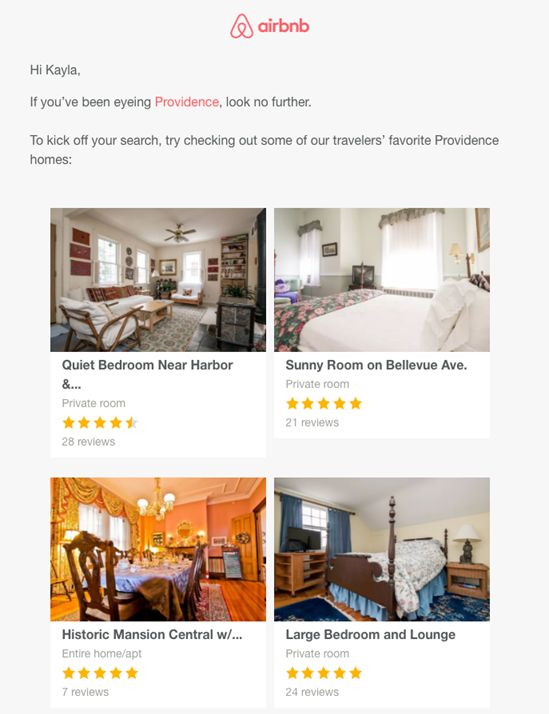

2. BuzzFeed: Automated Content Distribution
BuzzFeed leverages automation to distribute content across multiple platforms seamlessly. Their email marketing strategy uses AI-driven recommendations to suggest articles, quizzes, and videos that align with users’ interests. This approach has significantly boosted engagement rates and ensured that subscribers receive highly relevant content.


3. Netflix: Data-Driven Engagement
Netflix is a prime example of how automation and AI can drive customer engagement. Their recommendation engine analyzes user behavior and viewing patterns to suggest personalized movie and TV show recommendations. Additionally, automated email and push notifications remind users about upcoming releases and unfinished shows, keeping engagement levels high.


4. Amazon: Smart Product Recommendations
Amazon relies heavily on automation to enhance the shopping experience. Their algorithm-driven recommendation engine suggests products based on past purchases, browsing history, and search behavior. Automated email campaigns also remind customers of abandoned carts and suggest complementary products, increasing sales and customer satisfaction.
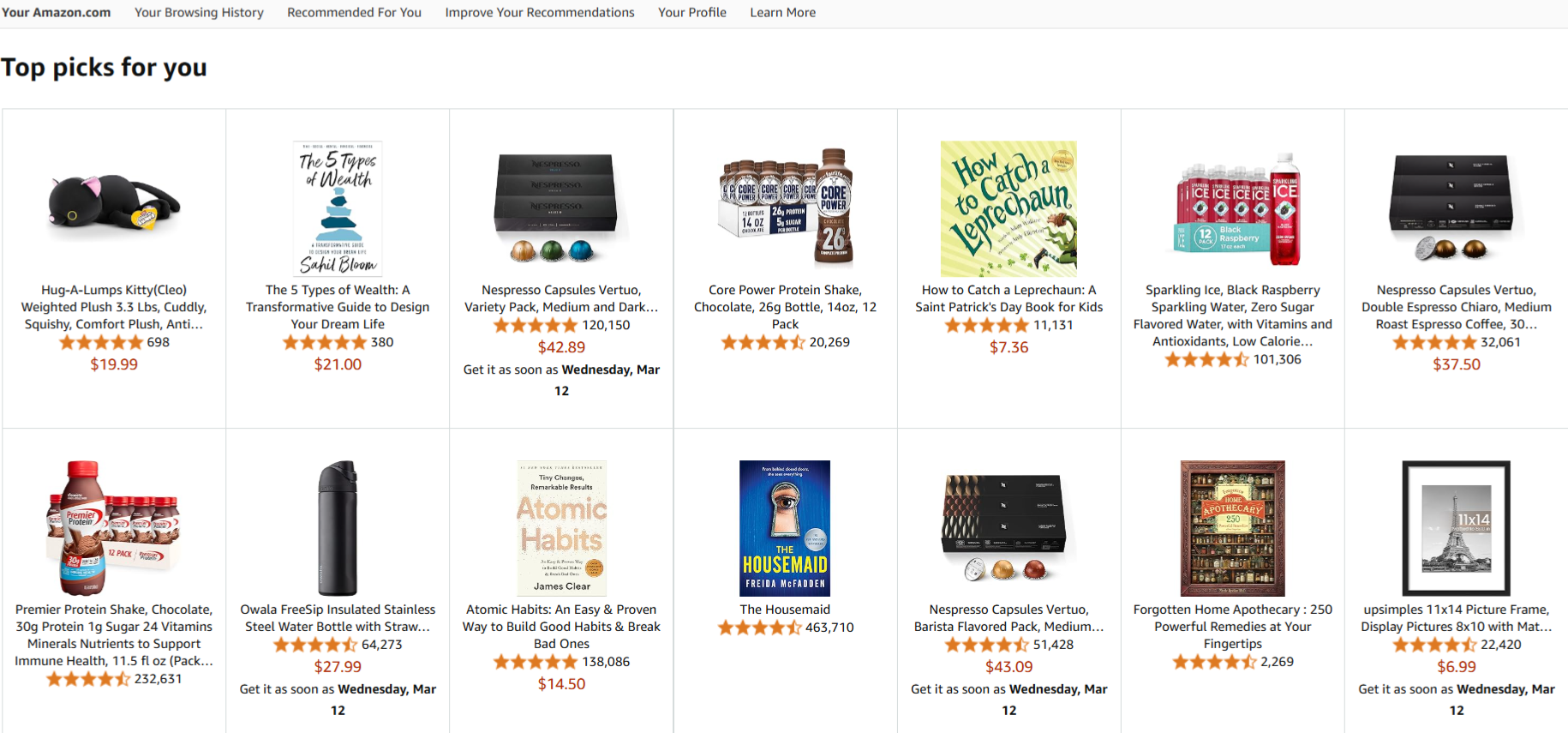

5. Sephora: AI-Powered Customer Interaction
Sephora uses chatbots and automated marketing to provide personalized beauty advice. Their automation system engages customers through quizzes, helping them find products suited to their needs. Automated follow-ups and loyalty program reminders keep customers engaged and encourage repeat purchases.


These success stories highlight how businesses across different industries are using automation to drive growth, improve efficiency, and enhance customer experiences.
Automate Your Marketing Agency Today
Marketing automation is a smart idea for any business, but especially so if you’re a content agency. The power of automation can help you build a thriving company without sacrificing quality.
Watch how to use BrandWell to get it done:
FAQs – What is Marketing Automation
What do you mean by marketing automation?
Marketing automation refers to the use of software and tools to automate repetitive marketing tasks and workflows. It involves streamlining tasks like email campaigns, social media posting, lead generation, customer segmentation, and data collection, helping businesses reach customers more efficiently and effectively.
How to make marketing automation?
To make marketing automation, follow these steps:
- Identify Goals: Define your marketing objectives, such as lead generation, customer retention, or sales growth.
- Select Tools: Choose the right marketing automation software like BrandWell, HubSpot, Mailchimp, or Marketo.
- Segment Audience: Categorize your customers based on behaviors and demographics.
- Create Campaigns: Design email sequences, social media posts, and automated workflows.
- Set Triggers: Establish automation rules, like sending emails after a customer action or setting time delays between messages.
- Monitor and Optimize: Track performance and adjust campaigns based on results.
What is the most common use of marketing automation?
The most common use of marketing automation is email marketing, which includes automating email sequences like welcome emails, follow-ups, and personalized offers based on customer behavior or preferences. It allows businesses to send timely and relevant messages to their audience at scale.
Does marketing automation really work?
Yes, marketing automation works by saving time, improving efficiency, and enhancing customer experiences. It helps businesses deliver personalized, timely communications at scale, increases conversion rates, and generates better ROI by targeting the right customers with the right message at the right time.
Conclusion
The benefits of effective marketing automation strategies are numerous.
For starters, they provide increased efficiency by freeing up resources that would otherwise be spent on manual labor or tedious tasks like data entry.
Automated systems also allow you to respond to your customers faster — even after office hours.
Improved customer engagement is another benefit associated with effective marketing automation strategies because it enables companies to target specific audiences with tailored messages based on their interests or behaviors. This helps create stronger relationships between brands and consumers which leads to higher conversion rates and increased loyalty.
With the right automation tools, you can scale your content marketing efforts without burning out — allowing you to focus on strategy while the software handles execution.
One of the biggest time-savers in content marketing is AI-powered content creation. Tools like BrandWell can generate high-quality, SEO-optimized blog posts, social media content, and email campaigns in minutes — helping you stay consistent without the hassle.
If you’re ready to take your marketing to the next level, give BrandWell a try and start automating your content creation today!

UNLOCK YOUR POTENTIAL
Long Headline that highlights Value Proposition of Lead Magnet
Grab a front row seat to our video masterclasses, interviews, case studies, tutorials, and guides.

